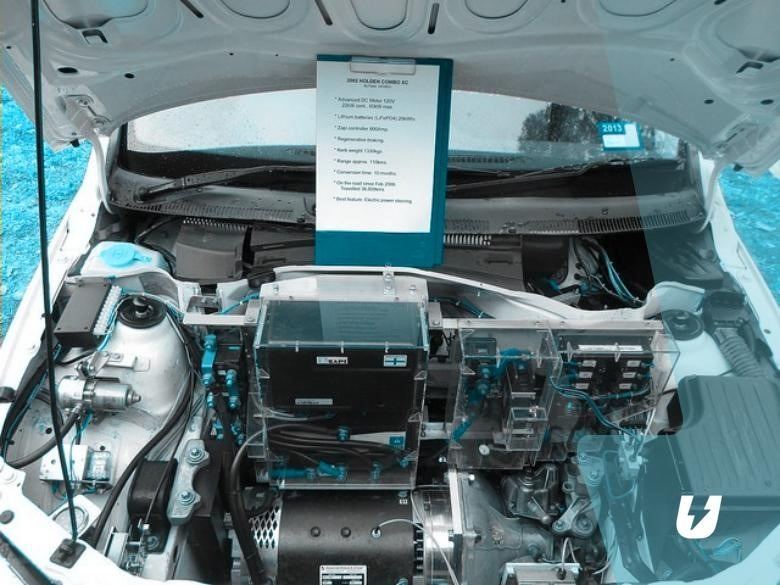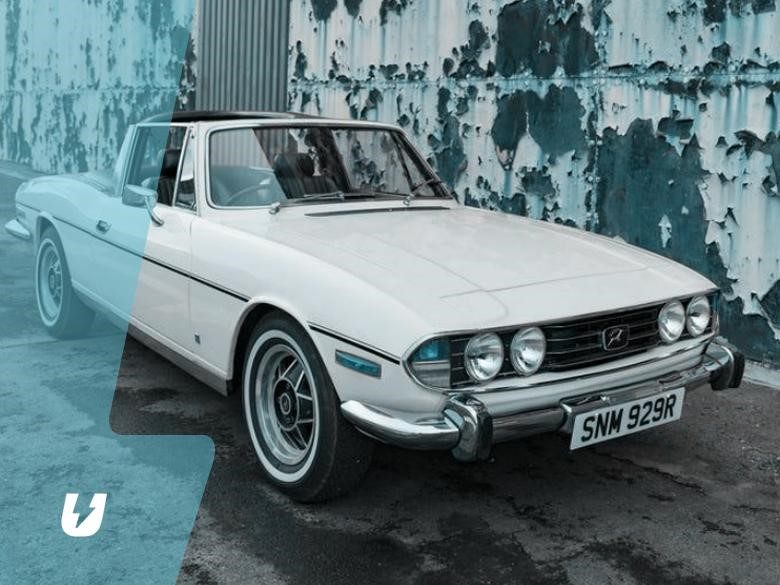Are you planning to convert your classic vehicle into an electric car? Converting your car into an electric vehicle is a great choice because of the savings and environmental incentives you get in return. But this is a meticulous process that involves a lot of engineering and paperwork.
Aside from the technical aspects of the project, there are also certain regulations that you need to follow like having your altered car registered before you can drive it on the road. It will be a long and arduous process for you if you’re not familiar with these regulations.
In this article, we’ve discussed not only the engineering procedures but also the legal aspects involved in electric vehicle conversion. Take note of this information so can work on your electric car conversion better.

Is it Possible to Convert Any Car to Electric?
In principle, it is possible to convert any car (ICE) into electric. As long as there is a way to replace the internal combustion engine with an electric motor and add the batteries, the conversion is always feasible.
But as we’ve mentioned earlier, converting your car also requires that you re-register it as a “radically altered” car. You can do this by going to the Gov.uk website, and filling up the following online forms.
You must also have the original receipts and registration documents of your electric vehicle conversion. Photos and other evidence of the conversion procedure will also contribute to the final approval.
Electric Car Conversion UK Law
The Driver and Vehicle Licensing Agency (DVLA) has a long and meticulous procedure for registering converted electric vehicles, which must be completed before the converted electric vehicle can be used on the road.
You need to follow the instructions on how to register a new vehicle from DVLA and provide the following requirements:
- the vehicle inspection report or V627/1 form
- the vehicle’s original registration certificate
- evidence of approval
- receipts for parts bought during the conversion
- photographs of the altered car.
Using a points system, the DVLA will try to determine the registration number for your car. To keep your vehicle’s original registration number, you should qualify on at least eight of the DVLA parts list and five of these should be awarded to the unmodified monocoque, chassis, or frame.
Further points will be awarded for the original suspension at the back and front (2 points), steering assembly (2 points), axles (2 points), and engine assembly (1 point).
Should you meet the following criteria, and combine parts of two cars together in your conversion, you should secure and submit the type approval to acquire the registration number with the prefix “Q”.
You must go through each Individual Vehicle Approval or IVA scheme to have your vehicle inspected by a DVSA-approved provider. You must also provide documents for evidence.
You will also be required to submit a model report that costs hundreds of pounds to complete the application form.

How to Convert a Car into an Electric Vehicle
A DIY car conversion may be a tempting prospect to you, but this is a very challenging and ambitious task. Converting a petrol car into an electric vehicle, for instance, requires a lot of mechanical engineering that only the experts can do.
Electric conversions are also costly, and risky and could damage your existing car’s performance if the engineering is not done right. Still, DIY conversions are not pointless and could still work with the proper resources and procedures.
Car owners who opt for third-party conversion with a specialist merchant will discover that their car becomes a donor, or medium that electric engineers will work on. Another challenge to DIY car conversion is the fact that you will have to buy certain parts required to create an electric vehicle from outside sources – which incurs additional cost and work.
In terms of electrical engineering, it’s fantastic how the central battery works as the engine that powers the car neatly with electricity that has been supplied by the grid while charging. Thus, the conversion will involve different specialist parts like batteries, controllers, and motors.
Converting a petrol car into an electric vehicle will improve its performance. When engineered right, the new mechanics will provide more freedom to the vehicle, distributing weight and improving overall performance.
Electric Car Conversion Kit UK
Firms and manufacturers are providing electric vehicle conversion kits that will allow you to convert a wide range of internal combustion and petrol engine cars to electrical at home. Basic kits generally have a starting price of £6,000 and the electric car conversion kit cost increases with the car’s quality.
It’s advisable to hire an experienced mechanic to work for you if you lack the engineering and electrical knowledge and skills for the job. Once you have done the conversion, you must fulfil DVLA’s registering procedure for ‘radically altered vehicles’ before giving it a test drive on the road.
The standard combustion parts for electric converted cars are fundamentally the same, although different in some parts. You will need the following parts to build an electric car:
- Batteries
- Electric Powertrain
- A donor car to put the parts in
- Additional Connecting Parts
You can start the conversion process once you’ve acquired all these essential parts. Again, you will need the advice of an experienced mechanic in buying the right parts for your vehicle.

How Much Does It Cost To Build Your Electric Vehicle?
The cost of building an electric vehicle remains a major challenge for car owners who are a bit tight on their budget. In the conversion market, the cost of converting an electric vehicle depends on the parts and engineering needed to transform the car. This includes changing the body or upholstery and buying a brand new powertrain and other stuff.
So if you include the engineering, batteries, and electronics, converting a classic Mini can cost around £30,000. For more exotic vehicles, prices for conversions may reach hundreds of thousands, and some that require specialist assistance can cost £1 million. If you don’t have that much money, an electric conversion kit would be a viable option.
If you want to save more on conversion projects, it is best to start searching for car conversion kits, among others. Most kits use the same components, from batteries to additional parts. It’s the reason why most kits cost the same.
For a conversion kit, prices may range from £6,000 (the most basic) to six figures for more complex setups. You have flexible choices, though, as more companies offer these kits at different prices.
Keep in mind, though, that setting up your electric car conversion won’t be easy and the assistance of an experienced mechanic is highly recommended.
Which Cars are Easier to Convert to Electric Vehicles?
The cars that are easiest to convert include the Porsche air-cooled versions like the Beetles, Fastback Porsche 912, Bus, Karman Ghia, Squareback, etc., and the VW. The reason for this is simple – the vehicle’s size, weight, and design make installation easy. The initial costs are also not expensive.
Having said that, you can convert any car you want as long as you have the resources and requirements to do so. The costs will vary, though, and the more expensive your car, the more costly the conversion will be.

Can I Hire Someone to Convert My Electric Car?
Yes. Many companies provide electric vehicle conversions in the UK. Many of these companies, though, tend to focus on classic or high-performance vehicles, and getting the services of such companies can be costly.
For instance, Electrogenic, an Oxford-based conversion company, has transformed a variety of cars into zero-emission vehicles from the classic Citroen DS to the iconic Mini. The company provides special packages for the Jaguar E-type, but their rates range from £54,000 to £80,000. These figures don’t include VAT or a donor vehicle.
Everrati is another such company that upgrades luxurious vehicles with a compassionate makeover and electric powertrains. The Porsche 964 is its pure-electric model and has a widebody kit that can go to a speed of 0-62mph in four seconds. The starting rate is £250,000.
Mainstream brands like MINI and Aston Martin have also begun providing the same packages so that buyers can transform their classic models into electric versions.
What are the Cheapest Car Conversions?
I’m sure you are familiar with the Nissans, Toyotas, and Volkswagens of the world. Classic sports vehicles can increase the total conversion prices starting at £11,000 and beyond. Buying individual parts will cost more.
The Toyota MR2 is one of the cheapest electric vehicles to convert. Wrenching this 1984 vehicle and transforming it into an electric car is a good option since it’s an iconic vehicle, to begin with. It is a popular conversion within the community and there should be available kits online.
The cost of converting an MR2 is about £7,000 which is just a bit more than the starting range of £6,000. The 1992 BMW E30 M3 is another cheap car conversion you can opt for.
Additional Tip
If you’re planning to do an electric car conversion, it only makes sense to include your electric car’s charger as well. And since you have already spent much on the car conversion, it is only reasonable to find an affordable chargepoint to save money.
Pumpt.io can provide you with quality and affordable electric chargers – the perfect addition to your converted electric car. Check out our product page for more details about our products and feel free to take advantage of our special offers.
If you want to know which EV charger is best suited for your vehicle, read EV Home Charger UK Buyer’s Guide – 7 Essential Questions

